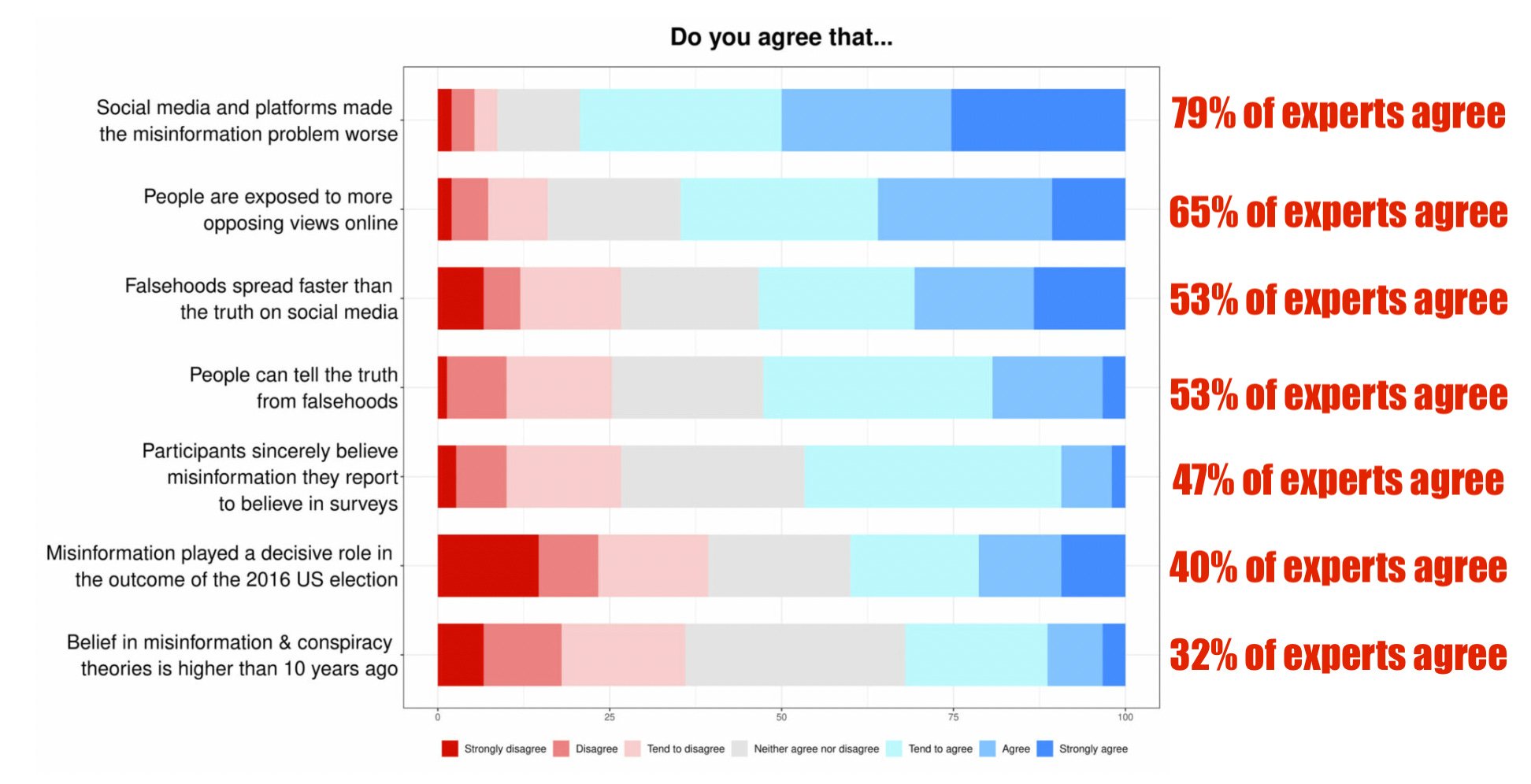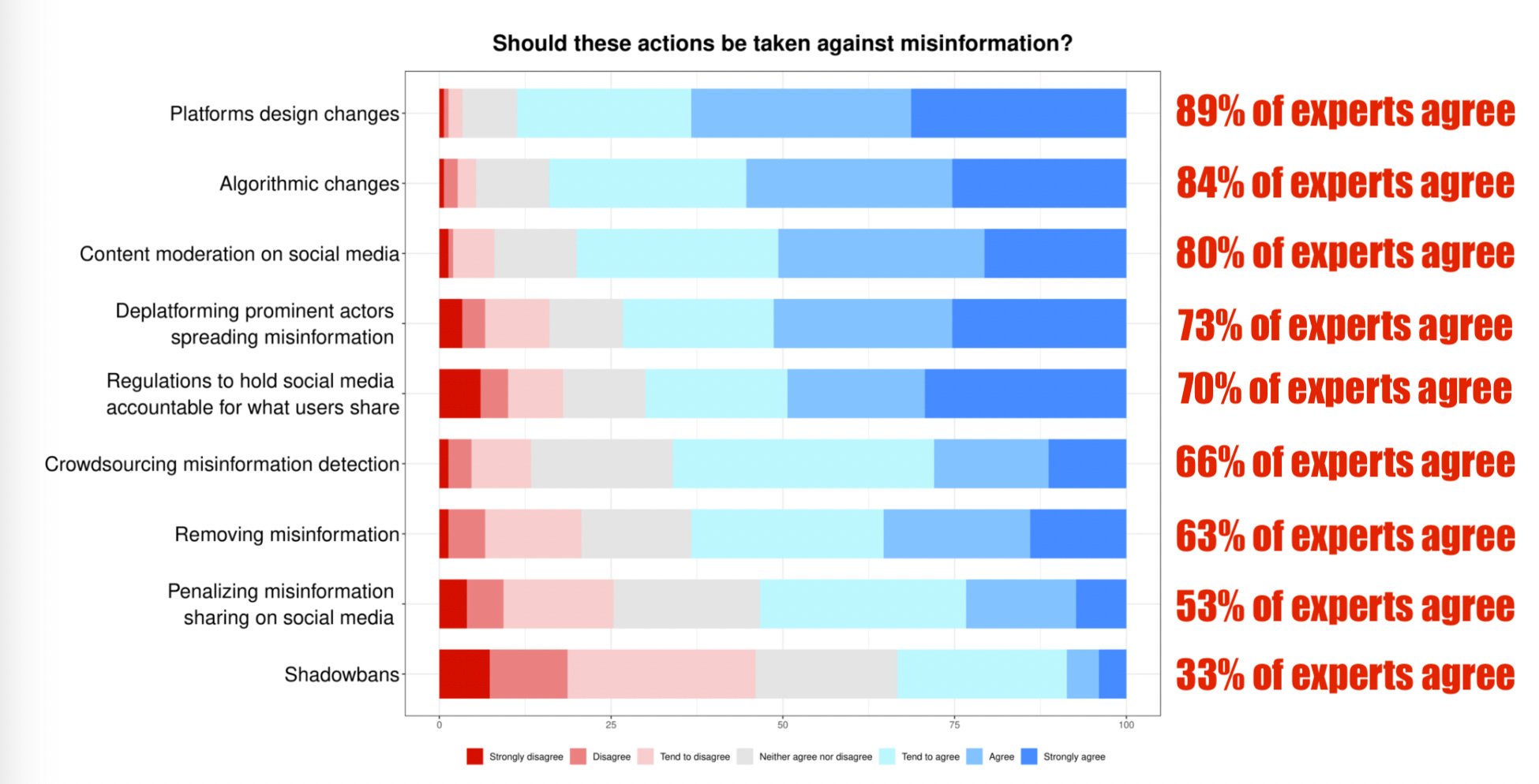Delaying the Inevitable
Using propaganda to avoid paradigm shifts
Just in case you were not yet aware, there is an effort to make factchecking and (mis)information management into an academic discipline.
“A survey of expert views on misinformation: Definitions, determinants, solutions, and future of the field”
ESSAY SUMMARY
The experts we surveyed defined misinformation as false and misleading information. They agreed that pseudoscience and conspiracy theories are misinformation, while satirical news is not. Experts across disciplines and methods disagreed on the importance of intentionality and whether propaganda, clickbait headlines, and hyperpartisan news are misinformation.
The experts agreed that social media platforms worsened the misinformation problem and that people are exposed to more opposing viewpoints online than offline. Respondents were also skeptical of the claim that misinformation determined the outcome of the 2016 U.S. presidential election, whereas psychologists were not.
The most popular explanations as to why people believe and share misinformation were partisanship, identity, confirmation bias, motivated reasoning, and lack of trust in institutions.
The experts we surveyed agreed that current interventions against misinformation, such as media literacy and fact-checking, would be effective if widely adopted. Experts were in favor of platform design changes, algorithmic changes, content moderation, de-platforming, and stronger regulations.
These experts also agreed that in the future, it will be important to collect more data outside of the United States, do more interdisciplinary work, examine subtler forms of misinformation, study platforms other than Twitter and Facebook, and develop better theories and interventions.
What is misinformation?
What do misinformation “experts” agree on?
What should be done about misinformation?
Ideas have strange properties. When the world is not ready, they can hide away for days, weeks, years, decades until the right time for their emergence. And then they present themselves, in harmony, all over the world.
Ideas are sticky. They slip into those minds that are open and embed themselves, as if into the subconscious, into the land of dreams and possibilities. Then they suddenly pop into awareness at the strangest of times, when some confluence of circumstance and need combines to make the previously hidden seem obvious.
And ideas have power. Power to subtly shift perspective and then abruptly change the world. Power to overturn economies, societies and governments.
Which is why those stakeholders benefitting from current status quo actively seek to suppress the spread of new ideas, inconvenient truths, and independent thought.
Recently revealed data and truths concerning the power of Google and the modern American Administrative state to craft, distribute and enforce approved narratives, and thereby to control election outcomes, have been nagging at my mind. I had already become worried about the power of modern PsyWar and Cognitive Warfare to twist minds into supporting a ruling oligarchy when governments (and bureaucracies) convince themselves that they are justified in deploying this technology on their own citizens. That this technology dwarfs any concerns about ballot integrity, makes the fundamental philosophical underpinnings of a self-governing republic (individual and collective sovereignty and autonomy, freedom of speech) completely obsolete, and appears to be the portal which will usher in an era of technocratic totalitarianism. Corporatism (or techno- Fascism) on steroids.
A shadow now haunts my mind. I am deeply troubled in confronting the reality that the world and version of political truths that I have been propagandized to believe over my entire life is merely smoke and mirrors. A vague uneasiness has been lurking around me over these last four years; a sense that I have not only been censored, defamed, and lied to during the time of COVID, but over my entire life. A deeply disturbing specter that the United States government is not the knighted champion of Camelot so frequently and pervasively portrayed in media and literature. Rather its actions since WW II have been those of an immature, petulant and narcissistic adolescent that feels entitled to exploit geopolitics and war to advance short term power and economic objectives that benefit a small elite, rather than more broadly advancing “democracy”, global economic development, and those ephemeral aspirations of life, liberty, and the pursuit of happiness. Not only have I been propagandized and lied to, but I also sense that the window of time where this behavior by a monolithic Imperial state has been tolerated is coming to an end, winding and grinding down into mundane corruption, bickering self-interest and bureaucratic dysfunctionalism. And that there is no way to stop this accelerating funhouse carousel of painted ponies and mirrors before an abrupt catastrophic failure of the hidden gears throws all into revolutionary chaos.
Maybe something like this has been bothering you also?
Whether fortunate or not, we live in a time of both disruption and deception. A period when change has become an inevitable norm, and yet objective reality is considered an obsolete anachronism. An anachronism that cannot be tolerated, and must be twisted or expunged to serve the interests of those most powerful who will always act to maintain their privilege. Poised in transition between the relatively stable legacy “Pax Americana” bequeathed to us by American military and political victories over twentieth century totalitarian regimes, and fragmentation into an increasingly multilateral rough and tumble world characterized by shifting transitory alliances based on short term interests and opportunity. We all now confront a surrealist intellectual and psychological landscape where truthiness becomes just another product to be marketed. Or propagandized. Or censored. Marketing, propaganda and censorship each being subtle linguistic variations on a single theme of methods to exert external control over the thought and behavior of what otherwise would be autonomous, independent and sovereign individuals.
At the moment we have the luxury to travel through the world of thought and objective fact, seeking meaning. This too may be transitory, a brief window of time that we will look back on nostalgically, pondering our own historical naivety. Consider how you saw the world during early 2020 to your current point of view. We are fortunate to still live in a time when we are able and allowed to exchange ideas, to trace down and discuss discovered artifacts of truth, to assemble our own narratives to explain those artifacts, and to act based on those belief systems. A time defined as that brief window which preceded a future present when only approved narratives are allowed to be shared. A period bounded on one side by a cascading collapse of a carefully crafted but fundamentally immature American Imperial state, and on the other by the rise of insatiable globalist corporatism.
For many, including myself, the fabric of the widely shared belief in the benevolence of the American Imperial state has been irreparably rendered by the grossly dysfunctional national and transnational mismanagement of the COVIDcrisis. Others were better able than I to see through the cloud of propaganda and lies long before SARS-CoV-2 was constructed. A virus developed and assembled by a bizarre and improbable collusion between US-dominated “biodefense” intelligence interests, the Chinese CCP/PLA (and its dual function Wuhan Institute of Virology), and an international network of entitled biomedical researchers.
But now the gloves are off, and as the underlying truths of this global tragedy are gradually being revealed, the American Imperial state and its allies (governments and corporations) are increasingly resorting to raw power to avoid the consequences of their actions. And with this, it is becoming easier to see the fist. A fist that takes the form of the most aggressive and pervasive global suppression of thought and speech ever witnessed in recorded history. One that is rapidly becoming normalized as an industrial/academic censorship and propaganda complex.
Science, technology, and geopolitics can all be described as methods for devising optimal solutions to various problem sets. In some cases, the problem sets are stable and universal, such as the nature of the universe and the properties of physical matter. In other cases, the problem sets are constantly changing as the underlying understandings and current solutions change or evolve under pressure to optimize a solution to address a need.
What censorship and propaganda do is to delay or prevent development of innovative ideas and solutions to unmet needs.
What happens as humans apply their minds and muscles to solving problems and creating value (and wealth, a storage form of value), is that the systems and technologies which they create get closer and closer over time to an optimized solution to the problem. Humans are able to not only adapt to changing conditions in real time, but can also efficiently archive and transmit their solutions to other humans through complex written and verbal communication. The result is rapid widespread innovation.
As the systems and solutions improve, they usually encounter obstacles which cannot be addressed by the current paradigm or model of reality. And when this happens, a gap develops between the problem or unmet need and current capabilities to address that gap due to some sort of boundary condition. This gap between unmet need and current solutions typically increases over time, particularly during periods of change.
In the case of science and technology, a scientific “revolution” will occur when some new idea, observation or solution (“disruptive technology”) results in a restructuring of understanding about the problem and potential solutions. Such events suddenly (abruptly) dissolve or overcome the boundary which has limited the development of an optimal solution to the problem, and a set of more optimal solutions are rapidly developed until the next boundary condition is encountered. The larger the gap between current and optimal solution, the more disruptive the change.
Political propaganda and censorship act as boundary conditions to development of more optimal solutions to the problems with which politics is concerned. Problems involving economics, finance, resource distribution, and (increasingly) the nature and impact of the human species on its environment, other species, and itself. When a local or more global hegemonic power (such as post WW II USA) or cabal (such as the World Economic Forum, WHO or United Nations) acts via propaganda and censorship to restrict the free flow of ideas and innovation in order to maintain its dominance, this leads to a growing gap (disparity) between current and optimal solutions. This gap is the unmet need, resolution of which is impeded by deployment of propaganda and censorship acting in service of a minority and against the interests of a majority of humankind.
In the case of periods of rapid change, this gap may rapidly expand, resulting in large differences between optimum and allowed solutions. This is particularly the case when objective reality (“truth”) is discarded in favor of subjective “truthiness” in which reality becomes whatever dominant individuals or groups assert it to be, and for which they may employ psychological manipulations of various forms to impose their subjective versions of “truth” (false narratives) on the larger population. Of course, these processes are exacerbated when political power is more globally aggregated rather than being decentralized. What might otherwise be a localized failed experiment becomes massive tragedy under a centralized or globalized political system of organization and governance. Example: COVID-19.
Eventually, this unmet need results in an intolerable level of social stress or strain, or difference between the average human condition and that of the elites which act to create boundaries to change, and a new constellation of ideas will arise which purport to resolve this discontinuity. The historic structure of human revolutions demonstrates that frustrated humanity will often abruptly endorse these new and different ideas- even though they have not been demonstrated to resolve the gap between current and optimal solutions.
In contrast, in a decentralized human society grounded in objective truth, where open and honest debate about ideas between sovereign autonomous individuals is the expected norm, what develops is a process wherein solutions to problems are constantly being explored, deployed at small scale, and subjected to the crucible of reality-based decision making. The consequence is an incremental set of improvements which allow real-time “evolution” of more optimal solutions to the problem set. And this system has the added benefit of avoiding development of a frustrated, disempowered majority willing to accept any alternative to a dysfunctional present.
Justification of the use of propaganda and censorship in order to sustain a hegemonic political/economic system which primarily benefits an oligarchy of one form or another (saving “democracy”, for example) represents immature, narcissistic, short term thinking. This must be rejected, if for no other reason that it will delay development of more effective solutions to current problems, and will also strongly contribute to the development of future social and political revolutions resulting in desperate adoption of unproven ideas and ideologies.
If you would like these blog posts to appear in your email stream,
please sign up to




